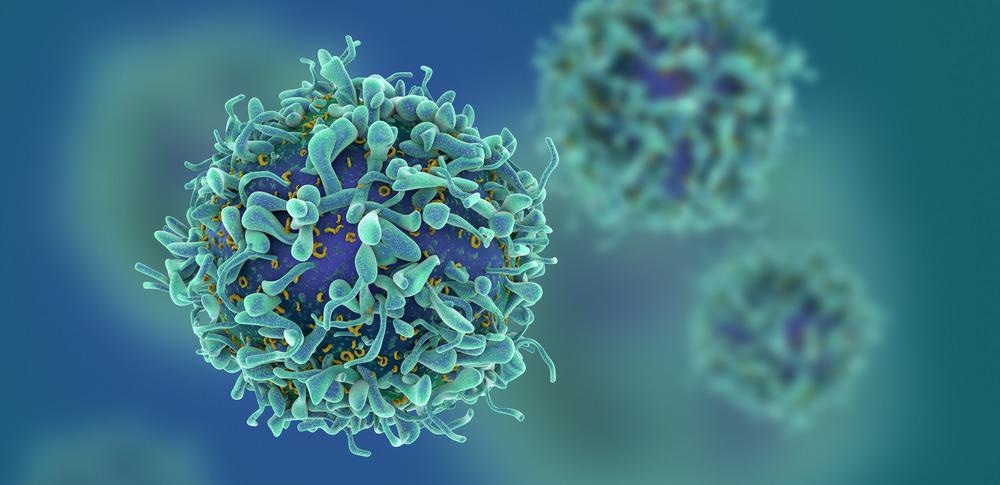New research from University College London (UCL) has brought us closer to predicting how patients will respond to cancer treatment. The novel mass spectrometry technique will be valuable to developing personalized treatment plans for patients.

Image Credit: fusebulb/Shutterstock.com
It is true that one-size-fits-all does not apply to cancer treatment. People respond uniquely to different treatment options due to a wide range of factors, including genetics, age, progression of the disease, prior treatments, and cancer type.
While oncologists aim to design treatment plans that will be the most effective for the individual, the process is incredibly difficult and still relies on guesswork and assumptions. Now, a new tool has been developed that could help clinicians decide which therapy will be most effective for any given patient.
Overcoming Previous Limitations of Organoids
Doctors often do not know how a patient will respond to different treatments until they trial them. While they can use all available data to help them make the most educated guesses, precious time can be wasted in trialing therapies that are not effective. This can lead to a patient losing time while their disease progresses, which can impact their survival chances and quality of life.
A new study published in the journal Nature Protocols presents a revolutionary technology that utilizes organoids, which are mini tumors that are grown from cancer stem cells taken from patients. Scientists can use each mini tumor grown in collagen in the lab to explore how different treatment methods impact the organoid, allowing doctors to predict more accurately how a patient might respond.
Recent years have seen many studies use organoids to study cancer. These cells can accurately represent a patient’s cancer, more so than traditional methods that use identical cells grown in two dimensions.
While the development of organoid research has led to cancer being investigated in an unprecedented level of detail, most currently available research methods require the grinding up of the cells prior to running analyses. This means that scientists are limited in their ability to gather data that could indicate how individual cells might behave in response to different therapeutics or how cancerous cells interact with healthy cells or immune cells to influence the progression of the disease.
Scientists at UCL Cancer Institute, London, set out to overcome this limitation. The team designed a novel mass spectrometry platform, capable of measuring communication signals produced by individual cells of bowel cancer mini tumors.
The technique sees the cells being prepared for analysis via mass spectrometry. To do this, the team attached heavy metal-tagged antibodies to individual proteins known as PTMs, which are found in every cell type in the body.
A mass spectrometer was then used to differentiate between the proteins in the sample via identification of the different weights of the proteins that were attributed to the different weights of the heavy metals.
During the study, more than 40 types of PTM were tagged, which allowed researchers to gather data on the behaviors and signaling activity of the proteins, and build a “circuit” to explain how the cancer cells were working.
Cancer cells can be observed alongside healthy cells via the new method. This is important because cancer does not act alone and new research is revealing that cancer cells often recruit healthy cells to help them proliferate.
The new technique lets doctors model how an individual’s cancer behaves by treating the mini tumors with different therapeutic options. The platform also allows doctors to see how the different treatments will affect healthy cells. This enables them to choose the most effective therapeutics without wasting time trialing those that will not work.
Future Developments in Cancer Treatment
The new tool can already rapidly test how cancerous cells will react to a range of treatments, including chemotherapy, immunotherapy, and radiotherapy. The team’s original technology has already been advanced so that it can now investigate hundreds and thousands of mini tumors simultaneously. However, further validation via clinical trials is still required before the tool can become widely available.
If successful, the new tool has the potential to drastically advance therapeutic planning and even enhance treatments outcomes by allowing doctors to choose the most effective therapy at the beginning, rather than wasting time starting with therapies that lack efficacy for the specific patient.
Long-term, the team sees their tool being established as a clinical ‘standard’ in the decision-making process of treating solid tumors.
The process could be streamlined where the surgically removed tumor is transported directly to the laboratory, where it is grown into an organoid avatar and tested with various therapeutic options.
The results would indicate which of the therapies investigated would give the best results, cutting out the risk of initiating a therapy that the patient might not respond to.
References and Further Reading
University College London. (2021) Predicting whether patients will respond to cancer treatment is a step closer. [Online] Medical Xpress. Available at: https://medicalxpress.com/news/2021-09-patients-cancer-treatment-closer.html (Accessed 18 October 2021)
Sufi, J., Qin, X., Rodriguez, F., Bu, Y., Vlckova, P., Zapatero, M., Nitz, M. and Tape, C. (2021) Multiplexed single-cell analysis of organoid signaling networks. Nature Protocols, 16(10), pp.4897-4918. https://www.nature.com/articles/s41596-021-00603-4
Tuveson, D. and Clevers, H. (2019) Cancer modeling meets human organoid technology. Science, 364(6444), pp.952-955. https://www.science.org/doi/10.1126/science.aaw6985
Disclaimer: The views expressed here are those of the author expressed in their private capacity and do not necessarily represent the views of AZoM.com Limited T/A AZoNetwork the owner and operator of this website. This disclaimer forms part of the Terms and conditions of use of this website.